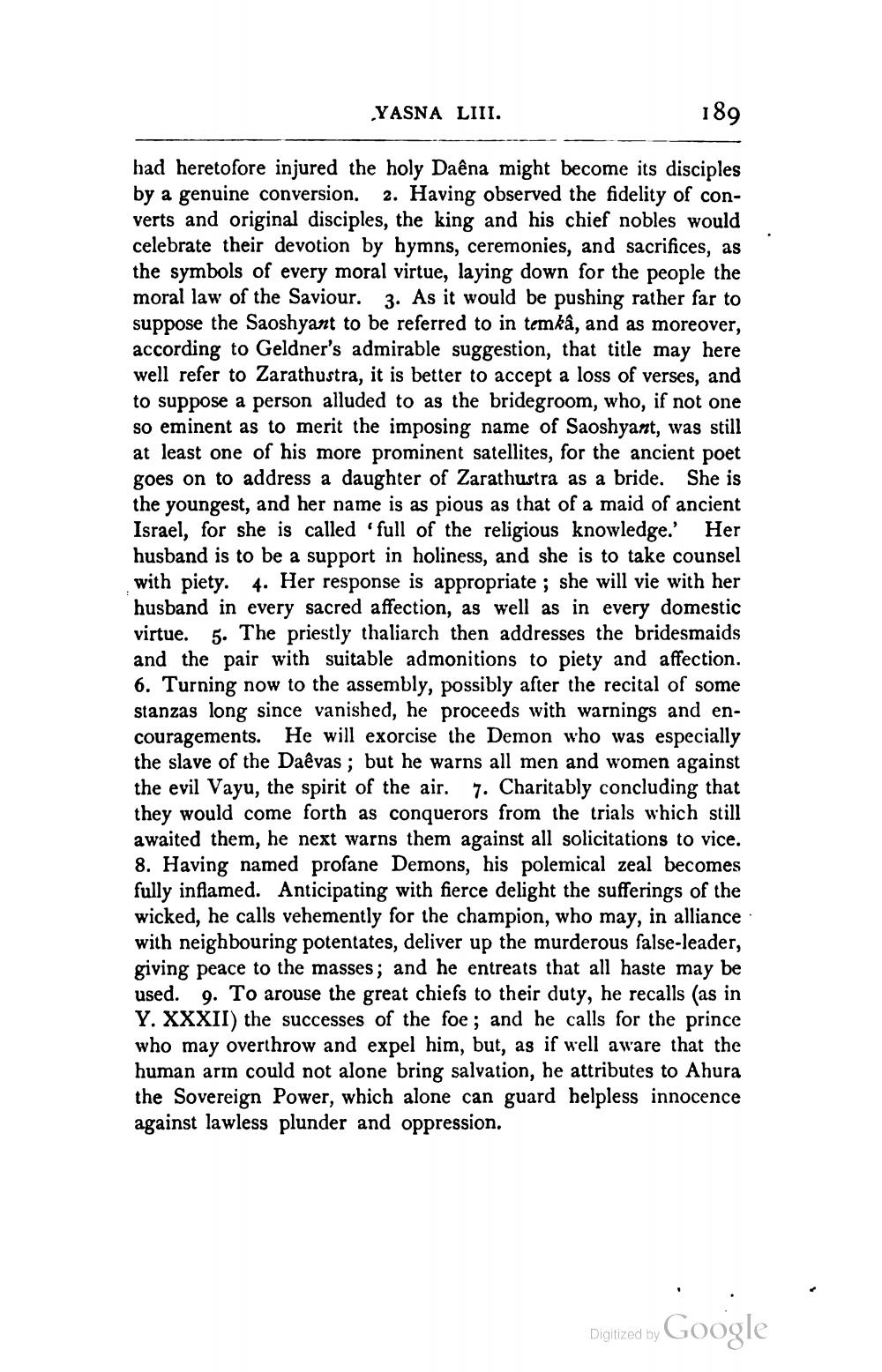________________
YASNA LIII.
189
had heretofore injured the holy Daệna might become its disciples by a genuine conversion. 2. Having observed the fidelity of converts and original disciples, the king and his chief nobles would celebrate their devotion by hymns, ceremonies, and sacrifices, as the symbols of every moral virtue, laying down for the people the moral law of the Saviour. 3. As it would be pushing rather far to suppose the Saoshyant to be referred to in temkâ, and as moreover, according to Geldner's admirable suggestion, that title may here well refer to Zarathustra, it is better to accept a loss of verses, and to suppose a person alluded to as the bridegroom, who, if not one so eminent as to merit the imposing name of Saoshyant, was still at least one of his more prominent satellites, for the ancient poet goes on to address a daughter of Zarathustra as a bride. She is the youngest, and her name is as pious as that of a maid of ancient Israel, for she is called 'full of the religious knowledge. Her husband is to be a support in holiness, and she is to take counsel with piety. 4. Her response is appropriate; she will vie with her husband in every sacred affection, as well as in every domestic virtue. 5. The priestly thaliarch then addresses the bridesmaids and the pair with suitable admonitions to piety and affection. 6. Turning now to the assembly, possibly after the recital of some stanzas long since vanished, he proceeds with warnings and encouragements. He will exorcise the Demon who was especially the slave of the Daêvas; but he warns all men and women against the evil Vayu, the spirit of the air. 7. Charitably concluding that they would come forth as conquerors from the trials which still awaited them, he next warns them against all solicitations to vice. 8. Having named profane Demons, his polemical zeal becomes fully inflamed. Anticipating with fierce delight the sufferings of the wicked, he calls vehemently for the champion, who may, in alliance with neighbouring potentates, deliver up the murderous false-leader, giving peace to the masses; and he entreats that all haste may be used. 9. To arouse the great chiefs to their duty, he recalls (as in Y. XXXII) the successes of the foe; and he calls for the prince who may overthrow and expel him, but, as if well aware that the human arm could not alone bring salvation, he attributes to Ahura the Sovereign Power, which alone can guard helpless innocence against lawless plunder and oppression.
Digitized by
Digitized by Google




